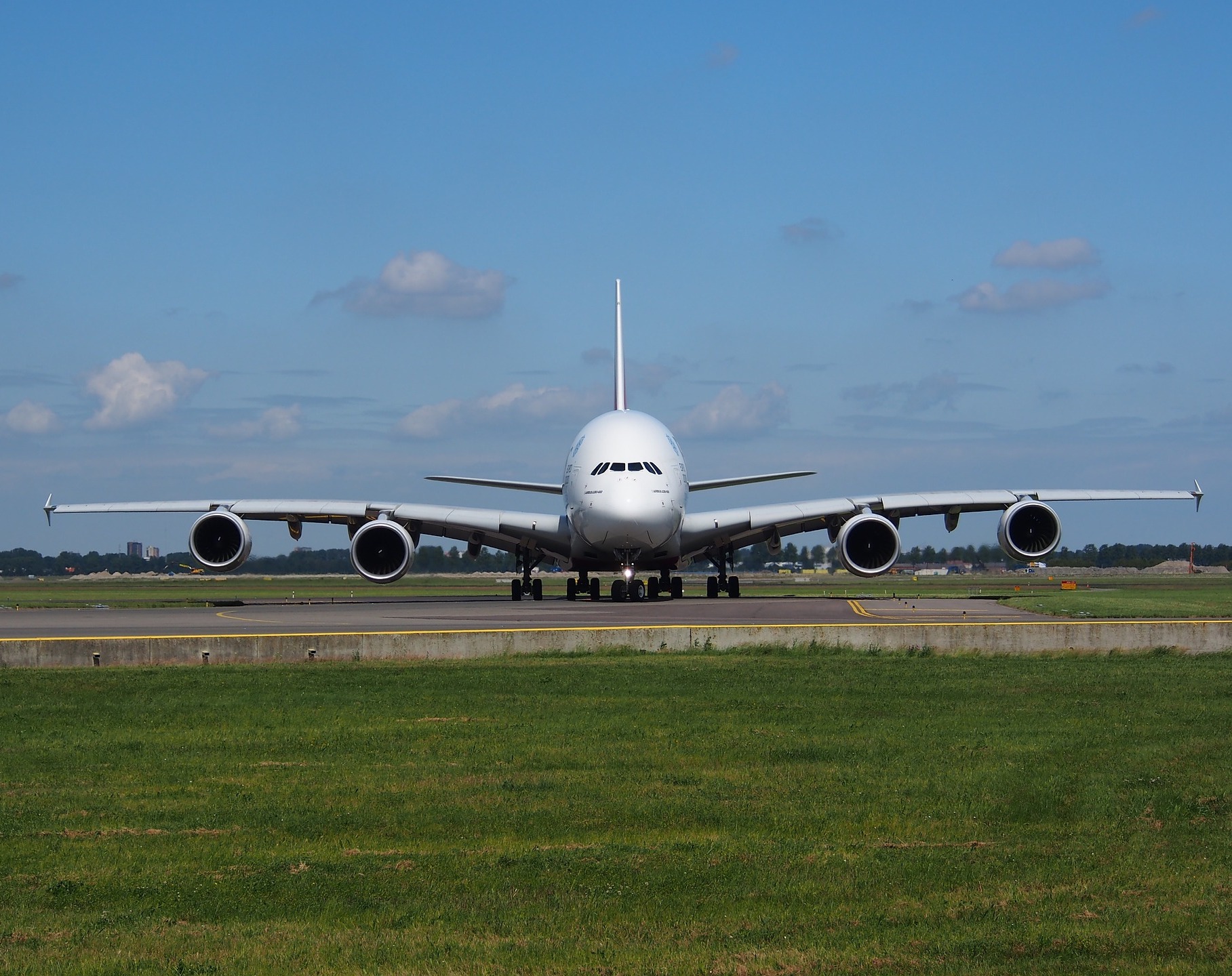In a hit-piece entitled Airbus’s Lesson for Young Socialists, a Wall Street Journal column heaps scorn on the Airbus A380 program.
The column is by Holman W. Jenkins Jr, a long-time columnist and editorial writer for the Journal. He starts by praising the resiliency of the Boeing 747 and 737 programs, noting that both aircraft are still being produced over 50 years later.
These programs are contrasted with the short-lived A380 program, which Jenkins blames on socialism:
Socialism is currently in vogue. If the word means anything in today’s context, it means projects of unusual government ambition, built on our globally shared capitalist technological and commercial base. The A380 was exactly such a project. Underwritten by massive European government subsidies, the plane was an engineering sensation. Passengers loved the roomy jet. Yet now it’s kaput. What went wrong? Or to phrase the question more usefully, what technological and commercial realities would its sponsors have had to overrule to assure its success?
He then argues that Airbus missed obvious consumer desires for direct flights and more frequencies sustainable with smaller aircraft in order to pursue a vain dream to outdo the 747.
His conclusion is that “socialism” may build airplanes, but it cannot sell them:
This should guide us in our thinking about what kind of “socialism” is possible today. Governments can tax their own people until they rebel at the ballot box, refuse to pay, or emigrate. They have no power, in our world, to dictate what kinds of goods and services and technologies (green or otherwise) the global marketplace will accept.
When the end came, it came because the A380’s last dedicated customer, the government-backed Emirates Airline of Dubai, gave up on the superjumbo. Planes in pristine condition were lingering unsold on the used-plane market. A 10-year-old jet was recently retired by Singapore Airlines . Now it’s being broken up for scrap, proving once again socialism’s knack for making grown men cry.
Finally, he links the Airbus A380 program to California’s bullet train project–facing massive cost overruns–to again reiterate his thesis that socialism doesn’t work.
My Thoughts
I have subscribed the Wall Street Journal for 15 years and unabashedly call it a newspaper I look forward to reading each day. I’m also not keen on government subsidies, like the kinds Delta receives to operate essential air service, from Canada for its Bombardier program, from the State of Georgia, and when it unloaded employee pensions onto the federal Pension Benefit Guaranty Corporation.
But I think Jenkins is far too quick to play into his own zeitgeist biases when it comes to the A380 program. In fact, over in the news section of the same February 19th edition, another article appears entitled, How Airbus’s A380 Went From Wonder to Blunder.
Sure, there were cost overruns, serious production problems, and pride issued involved, but the biggest problem of the A380 program was that Airbus made a calculated risk of market conditions that turned out to be wrong.
As the article points out,
All jetliners are expensive bets on technology, engineering and market trends. When Boeing’s 747 first flew in 1969, it was triple the size of any other plane in the air and for several years its success was uncertain.
Boeing took a huge bet on the 747 program…and won. It proved to be a remarkably successful program. Airbus figured that it could create a larger, more comfortable aircraft that could more efficiently shuttle passengers from hub to hub. It was a commercial decision that could have turned out splendidly.
Instead, though, the Boeing 787 and Airbus A350 programs were what airlines really wanted. And we see that within Airbus the A350 and later A330neo programs were key competitors to its A380 program.
Not every commercial risk is going to be pay off, but with great risk comes the potential of great reward.
CONCLUSION
The A380 was hardly the only aircraft to experience cost overruns, delays, and disappointments. I just cannot be as hard as Jenkins is on Airbus. Were there seriously blunders? Absolutely. But let’s give Airbus credit for creating an amazing aircraft and at least trying something new and different that may well have taken off under different conditions beyond the control of Airbus or Boeing.




…and really what was the risk? They were spending other people’s money – so just go for it!
Surprisingly, or not, considering where the comment is coming from, you lack the intelligence to hunt out all of the facts regarding the program and how it almost bankrupt the company. Airbus isn’t a social company, but just like every public company, they’re owned by the people.
Airbus may be owned by the shareholders (of which the governments of several controls maintained substantial holding), but the decision making process is certainly beaurcratic, and controlled by politicians who are experts in the skill of playing with tax-payers’ money for advancement of their own political ambition.
Oh, I see, the launch subsidies that were not recouped (lost) were the people’s money. That puts me in my place. Thanks for the lesson professor.
And yet the ‘spoke to spoke’ new players in the field, the 787 and A350 etc are still plying hub to hub routes. What does that tell us ?
“He then argues that Airbus missed obvious consumer desires for direct flights and more frequencies sustainable with smaller aircraft in order to pursue a vain dream to outdo the 747.”
Well, this was obvious to Boeing, wasn’t it?
“Airbus figured that it could create a larger, more comfortable aircraft that could more efficiently shuttle passengers from hub to hub. It was a commercial decision that could have turned out splendidly.”
Actually, that decision was heavily influenced by the subsidies received by Airbus from the EU governments. Please run a quick search to read up on the World Trade Organization litigation. One of their conclusions was that Airbus received about $9 billion in launch subsidies. Does this sound like a “commercial decision”? As we can see now, this was simply not sustainable.
As a side comment, why would the citizens of France and Germany, where this plane is made, have to subsidize Emirates’ extravagant planes?!
I don’t deny the Airbus subsidies. I was already at 700 words or I would have explored that as well. Do you deny the Boeing subsides on the defense side that have richly propped up the entire company?
This is Airbus’ argument against accusations of unfair subsidies …
Boeing has their own, well known, issues with subsidies for both the defense and the civilian business units. However, Airbus also receives subsidies for their defense projects and joint ventures. Also, a full quarter of Airbus is owned by the governments of France, Germany and Spain!
Note that the A380 failure is the second prominent one for Airbus, after the A340. In both cases Airbus did not have to pay back the loans guaranteed by governments. In other words they took a gamble with somebody else’s money and failed (twice, so far). This is called socializing the losses and privatizing the profits, my friend. And, again, this project only “worked” for Emirates, which is a government owned company so doesn’t really have to stand on its own merits.
Matthew, I’m completely neutral as far as Boeing and Airbus are concerned and I’m really happy there’s at least some competition for Boeing, even though it has the issues I mentioned above. However, I believe the soft-socialism style of this EU enterprise is highly detrimental and I believe we should try to learn a lesson from this very expensive failure.
Sounds like another right wing Murdoch lackey
Government’s are often very bad at making investment decisions because of the lack of market incentives and risk mechanisms that otherwise would apply in a private venture. However, the fact is that public investment has been an essential component of development, technological innovation and projects throughout the modern era. Sometimes, governments can get investment right (interstate highway system), while other times a seemingly bad investment pays off over the very long run (ie. channel tunnel). It’s not black or white. We should be hesitant and approach with caution any politicised, seemingly uneconomic government project, but that doesn’t mean we should dismiss them entirely.
You mention it and one can only imagine if Emirates had not made the A380 the cornerstone of its fleet. The program would have died years ago and the A380 would be about as “rare” today as the Concorde was back in the day.
I completely agree. Without Emirates’ support and purchases the A380 would have died off years ago and would have been an even bigger disaster.
A major problem the A380 faced was that the market they envisioned for the plane never materialized. That market was heavy hub to hub flying, or major city to major city. Airbus banked on that market. Boeing, on the other hand, banked on the long thin routes. Just like Boeing gambled on not producing a larger super-jumbo than the 747 Airbus gambled on not building the A350 sooner. Airbus lost the bet, Boeing won (though Airbus was admirably quick in response to the 787).
The WSJ article is just as short-sighted as this blog post, neither talks at all about the major gambles Airbus and Boeing both made.
I gave up reading the Wall Street Journal after Fox bought it. The A380 was simply the wrong plane at the wrong time. Down the road there might be a need. But like other aircraft failures, the Lockheed L188 Electra comes to mind. It’s a judgement of the market. Socialism has nothing to do with it!
The Electra had a couple of bad accidents shortly after introduction into the main airlines of the day. Basically an engine mount issue. That’s what killed it.
No mention of the Boeing subsidies…
I clearly recall when the A380 made a very symbolic landing at LAX back in 2007. All the news media (especially the fake news) covered it. Due to its size, it appeared to fly so slow and almost float as it landed. I will never forget!
With that said, there was such government waste as well as outright violation of trade agreements in the completion of this project. Even so, the big-government socialists could not build a plane that airlines wanted to buy!
Any credibility you’d hope to have quickly evaporated with “fake news”. I think you missed the website you were looking for – http://www.foxnews.com
Justin- great comment and exactly on point. I’ll also add that culture and history has a lot to do with it. When I was in Singapore I learned that approximately 90% of the people there live in public housing. It is well built and well run because it is a priority of the government and the people. In the US public housing is housing of last resort and an after-thought politically. So the outcome is it doesn’t get funded well and can’t attract good people, and the buildings and communities suffer.
I’ll add that delays and const overruns are a constant in any “clean sheet” aircraft. Boeing had them with the 787. That aspect of the A380 program doesn’t tell us much about it.
Haha, I too lived in Singapore for a few years and the HDB (public housing system) there was another example of positive Government investment I was thinking of! Living in Singapore actually taught me to shed some of my ideological biases in that it was an example of a highly market-oriented economy that also had a high degree of state involvement and yet with extremely positive socio-economic outcomes. The Government of Singapore levies extremely low taxes (relative to the West), invests heavily in infrastructure and yet has extremely low debt and very high outcomes. I guess my point is that there are examples of highly effective government spending and highly ineffective private spending and vice versa.
And it’s not like Boeing doesn’t make mistakes just because they are a private company. The 747-8 hasn’t exactly been a great seller either for the same market reasons. They did invest a lot less money in it, I will agree.
Boeing gambled very little to produce the 747-8 since it’s still a money maker in the cargo world.
I wouldn’t have blamed the A380 on socialism so much as statism. France supports Airbus to an extent that ought to have been flagged years by the WTO years ago but that’s beside the point. France and Airbus do what they do in order to preserve a French national priority: continuing to have a native European aircraft industry. I don’t blame them for that anymore than I blame Americans for wanting to “Buy American” or Trump for saying “America First” (note that he doesn’t say “America Only” despite how his critics construe his remarks).
The people I would really come down hard on were the so-called civil servants who decided to revamp existing airports at (great) taxpayer expense in order to accommodate a single aircraft. It’s one thing to reconfigure terminal space, it’s a whole other to change runways and taxiways because one company decided to build an aircraft that was too darned wide.
Jenkins called this one correctly way back in the day. I’d encourage you to find his old a380 columns in the wsj
I remember going through my undergrad AeroEng program about 20 years ago, and discussing even then how the 787 and the A380 forms represented fundamentally different bets on the future of commercial air travel and what customers (both airlines and individuals) would prefer. Even then, it was clear that these were bets by company management and not state actors. Perhaps that author could better direct their focus to ongoing failures of the F-22 or the JSF program, both of which bear the marks of state-level decision makers to a much larger extent than the A380.
I don’t agree with the blatant pivot to socialism and extrapolation to other issues that come under the category of socialism. Europe will always make sure Airbus survives. And the U.S. will always make sure, if necessary, that Boeing survives. Under no circumstances will the U.S. government allow Boeing to fail as an enterprise. It is in both the U.S. national interest for Boeing to exist as an ongoing business and Europe made a decision that it was in various member’s national and public interest to invest public money in Airbus, and to continue to do so over time. However, it does seem questionable to support the idea that public money could be used to require a specific aircraft development project. Those are decisions that should never be made by those other than aviation experts. But to say that public government money invested in Airbus (and/or the A380) is bad and therefore all other possible examples of “socialism” is therefore bad is silly. Note: The upcoming national US elections in 2020 (for which of course campaigns both publicly and behind the scenes have already started) are going to be all about two buzz word themes: 1) Immigration, and 2) Socialism. Many media outlets are starting, and will continue, to use the terror-inducing word “socialism” whenever possible, regardless of the use’s accuracy.
There’s another point that the journal neglects. Airlines do not compete anywhere except international flights. Where the a380 actually made inroads.
The airlines in the states view anything that increases capacity as a threat to how they’ve divied up the u.s. if one airline here had bought the 380, it would have been a signal to the rest that they were on the aggressive. Hence none bought the craft, at least in part because it would have threatened their rent payments.
I totally remember the pressure some brought against Boeing for not competing. Boeing stated that they did not see any possibility of commercial success. Boeing also considered a competing, smaller jet that could fly around 15% faster. Airlines had little interest. Boeing then discussed a jet that could operate with 15% fuel savings and lower fuselage maintenance costs and airlines signaled greater interest leading to the 787.
Don’t Americans ever get tired of their inferiority complex?
I salute the writer of the article for ability to view an airplane in political ideology context such socialism. Was it because the large amount of passenger it carries implied socialist practice? I’m more amazed that Emirates were highlighted while the first user is actually SQ, something even Matt forgot to mention.
I do, however understand that it may have been a paid article aimed at the California bullet train project, while piggybacking campaign against UAE carriers.
Seeing the comments here, no wonder you guys stuck in trivial matters instead of core issues.
Thank you, Matthew for sparking us some debate on an interesting piece from the WSJ.
Air travel (actually, all forms of transportation) is actually a peculiar hybrid realm of profit and public need.
Much of it, in one way or another, is subsidized, and it is also highly legislated and regulated (with lobbying from all the “stakeholders.”)
Airplane manufacturers are the most hybrid, as they might have one factory making commercial airliners, while another is building military aircraft. They are huge employers, swallow and generate massive amounts of taxes.
This is ultimately, Monday morning quarterbacking.
Say what you want. I’ve flown the A380 with BA, TG, LH, QF and SQ .. an absolutely magnificent aircraft no matter where you sit. Isn’t it better to try … and fail … rather than to not try at all? I’m thankful that Airbus tried .. and I truly look forward to travelling again on the REAL Queen of the Skies. There is nothing like it.